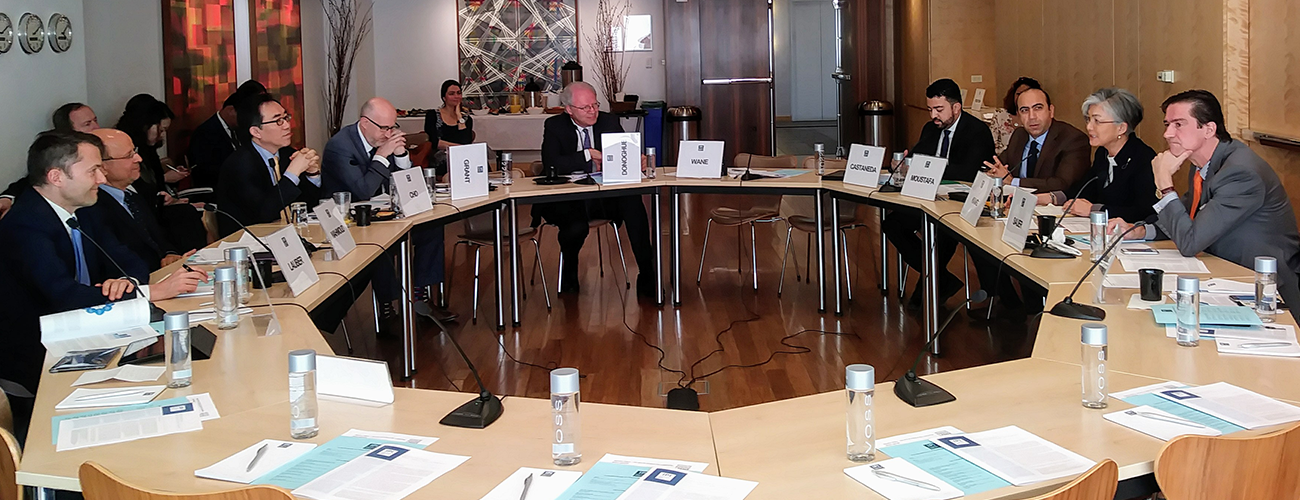As part of an ongoing effort to unpack the conceptual and practical contours of prevention for sustaining peace, IPI organized the third in a series of monthly high-level conversations among member states and other key stakeholders on April 10, 2017. The closed-door workshop explored what measures or changes the concept of sustaining peace implies in practice, building upon the preceding issue brief. The meeting follows a previous conversation, in March, on a sustaining peace approach to the restoration and extension of state authority in peace operations.
Participants agreed that the sustaining peace lens provides alternative ways to think about conflict and peace, based on the understanding that every society has capacities for peace. By understanding “what still works,” even in situations of conflict or crisis, the international community can support the positive changes already being driven by internal actors.
The conversation examined the current situation in three countries – The Gambia, Burundi, and the Central African Republic – with an eye to identifying the positive resilient capacities existing in those countries. The discussion highlighted the unique role the Peacebuilding Commission can play in such efforts, and touched upon other national and international initiatives that served as practical examples of a sustaining peace approach.
Youssef Mahmoud, IPI Senior Adviser, moderated the discussion.
Read the meeting brief in English
Read the meeting brief in French








